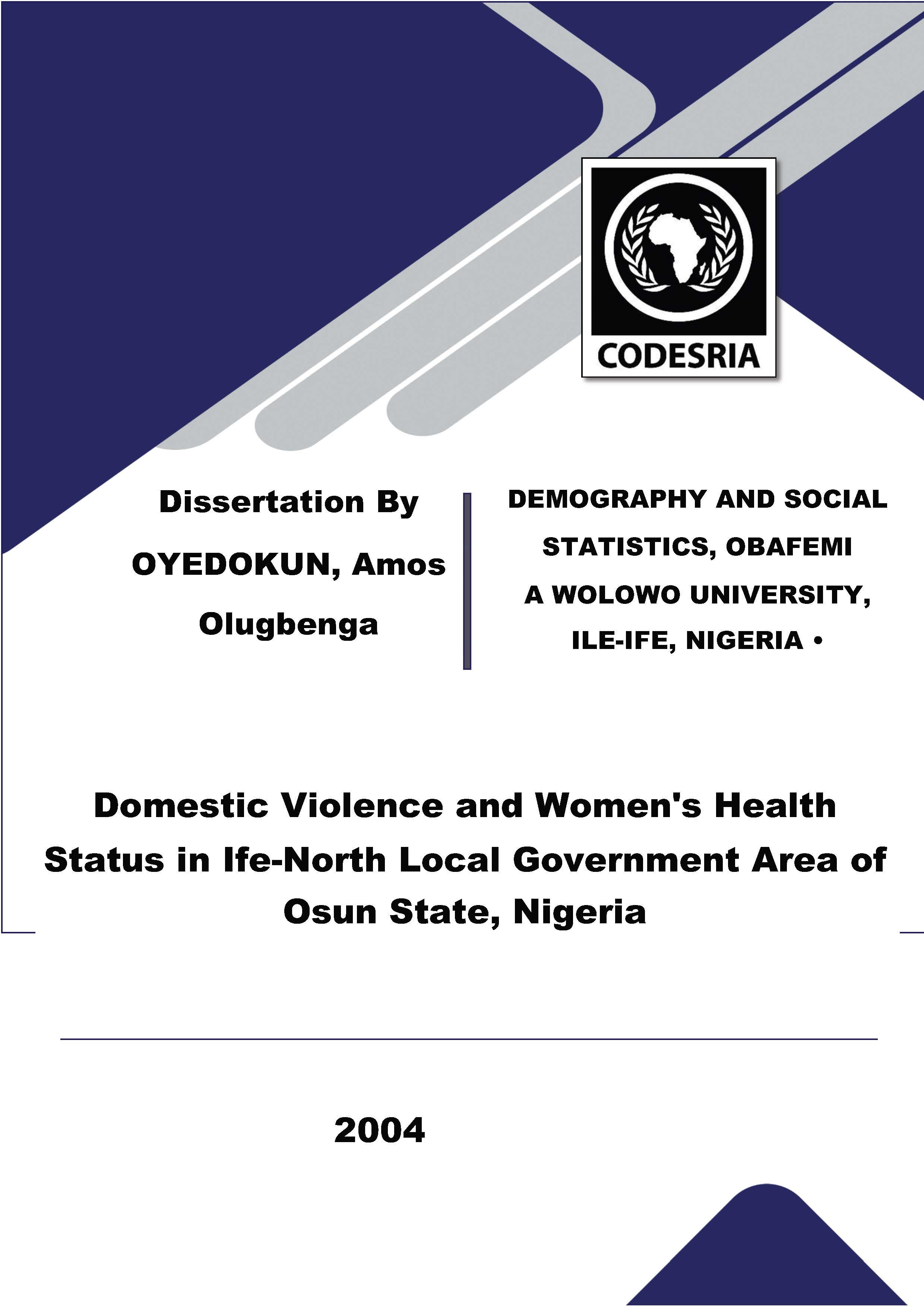Domestic Violence and Women's Health Status in Ife-North Local Government Area of Osun State, Nigeria
Mots-clés :
Violence against women, women's health, contraceptive methods, women's status, rape, NigeriaSynopsis
This study examined and evaluated the extent and effect of domestic violence
(wife battery and marital rape) on women's decision to use contraceptive methods in two
randomly selected communities of Ife-North Local Government Area of Osun state.
The data for the study were obtained from a survey of four hundred and eight
(408) ever-married women aged 15-49, conducted between late 2002 and early 2003,
using multistage random sampling technique. Two hundred and fifty-five eligible
respondents were selected from Ipetumodu using systematic random sampling technique
while one hundred and fifty-three eligible respondents were selected from Asipa using a
combination of systematic random sampling technique and lottery method. The
information required was collected by the use of structured questionnaires and through
Focus Group Discussions (FGDs). Four Focus Group Discussion sessions were held with
some respondents chosen on the basis of marriage and age, that is, two sessions each in
each of the two locations.
The study showed that domestic violence in form of wife battery and marital rape
existed in the study area as 55.6% of the women respondents reported having been
threatened with physical harassment by their partners; and 62.0% had been physically
abused by their intimate partners. About 56% reported experiencing forced sexual
relationship with their partners, 17 .2% experienced domestic violence during pregnancy,
while only 13.7% of those who had this experience took some steps to protect
themselves. The major coping strategy by the victims was pacifying their husbands in
crisis situation (25.7%). Although knowledge of contraceptive methods was high among
women in the area (82.4%), only 30.1% reported ever using any of the known method
Téléchargements
Références
Abdullah, R., Raj-Hashim, R., Schmitt, G., (1995): "Battered women in Malaysia: prevalence, proplems and public attitudes". Petaling, Malaysia, Women's Aid Association, 1995
Adedokun, O.A., (2000): "Women, Empowerment and Reproductive Health: Progress and prospects for the future in Nigeria". In: Ebigbola, J.A. and Renne, E.P. eds.
Population and Development Issues Ideas and Debates Pp. 255-281.
Adewuyi, A. and Ogunjuyigbe, P. (2003): "The role of men in family planning: An examination of men's knowledge and attitude to contraceptive use among the Yorubas". African Population Studies Vol.18, No1, April 2003
Albert, 0.1., (1994): "Women and Urban Violence in Kano, Nigeria. Spectrum Books Limited. lbadan.
Ampofo, A.A. (2001 ): 'When men speak women listen: Gender socialization and young adolescents' attitudes to sexual and reproductive issues'. African Journal of Reproductive Health, 5(3): 196-212.






